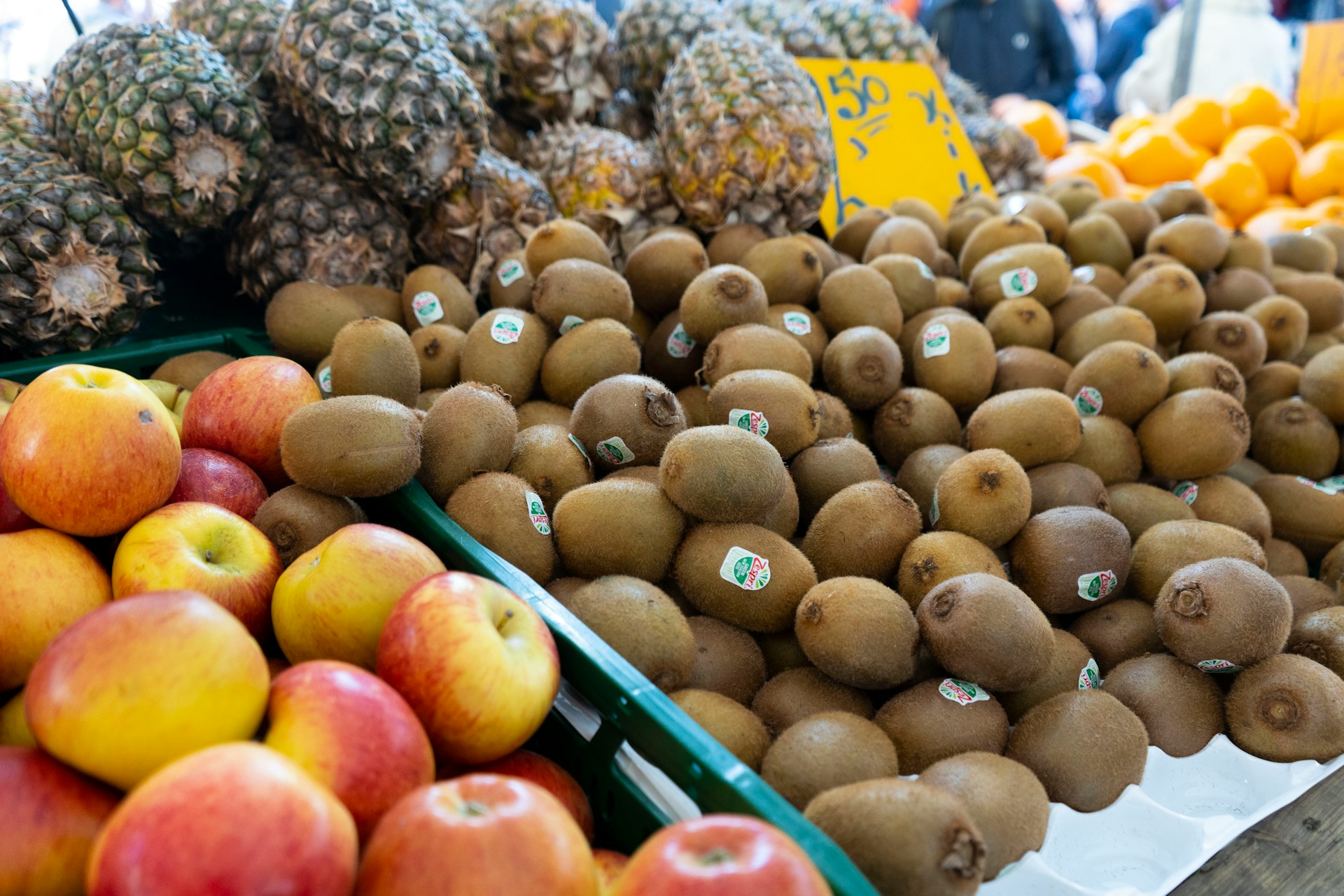Managing supply chain relationships effectively is a crucial element for success in produce distribution.
Strengthening these alliances can yield increased productivity, improved efficiency, and enhanced quality.
This business quest demands a greater focus on strategies to foster trust, collaboration, and mutual growth with suppliers.
Hence, it is imperative to unravel the methods that can be adopted to solidify bonds with stakeholders within this industry.
The key lies not only in networking efficiently, but also in comprehending and aligning with the suppliers’ goals and requirements.
This blog will delve deep into the best practices, strategies, and tools to achieve this target.
Contents
Supplier Relationship Builders In Produce Distribution
1. Regular communication and updates
Communication is the foundational building block in any kind of relationship, including those between suppliers and distributors in the produce industry.
For codes of business conduct to succeed, it is essential for regular communication to occur.
Produce distributors should maintain a constant dialogue with their suppliers, discussing matters like delivery schedules, product quality, pricing, and other important matters.
Updates should be provided on a consistent basis as they help prevent confusion and allow for better planning and forecasting.
Regular communication and updates help ensure that everyone involved has a clear understanding of what is expected, which can significantly reduce the likelihood of misunderstandings or miscommunications.
Regularly sending out updates and requiring status reports can lead to a productive, and collaborative relationship.
With regular communication, it becomes easier to pinpoint any issues or problems and address them before they can escalate.
It’s a practice that builds trust, which, in turn, helps to strengthen the relationship between the produce distributor and their suppliers.
Even when things are going well, communication should not be neglected – things can change quickly in the produce industry, and being well-informed beforehand helps in making proactive decisions.
This regular exchange not only helps the business but also signals to the suppliers that they are valuable contributors to the enterprise.
Investing in good communication tools and ensuring that they are utilized effectively is also crucial for maintaining regular communication and updates.
When all parties have a clear understanding through regular communication and updates, it becomes easier to work together to meet common objectives.
Timely and consistent updates regarding market trends, sales forecasts, or any operational changes can help suppliers adapt their production process accordingly, thus ensuring a smooth supply chain flow.
When suppliers are kept in the loop through regular communication and updates, they are more likely to feel valued and invested in the relationship, which in turn leads to increased reliability and productivity.
Indeed, effective and regular communication and updates are crucial for any successful supplier and distributor relationship in the produce industry.
2. Immediate Problem Resolution
In the world of produce distribution, resolving problems as soon as they arise is a crucial element in maintaining solid supplier relationships.
When unexpected situations occur, swift action not only demonstrates your commitment to reliability but also strengthens the bond of trust between you and your supplier.
Naturally, a crucial part of this is having a dedicated team in place to handle any emerging issues immediately.
Whether the problems are logistical or related to product quality, providing a timely resolution can minimize potential damage to both product and relationships.
It’s crucial to avoid painting a prettier picture just for the sake of reputation.
It’s crucial to avoid painting a prettier picture just for the sake of reputation. Being transparent about the extent of the problem and the measures taken to address it fosters a culture of transparency and trust with your supplier.
No matter how small an issue may seem, every concern must be addressed promptly and comprehensively.
This extends beyond simply delivering on contractual obligations. It’s also about showing a commitment to solving problems together and seeking the best solutions for all parties involved.
This proactive approach serves to cement the supplier’s confidence in your ability to navigate hiccups smoothly and efficiently.
As a distributor, one’s ability to adapt quickly and adeptly speaks volumes about the nature of the business relationship and the level of respect for the supplier.
This strategy of immediate problem resolution should not be a reactive, one-off process.
Instead, it should be embedded as a central component of your standard business practices, permeating every aspect of your supplier-related operations.
Insisting on immediate problem resolution ultimately contributes to the longevity of supplier relationships and establishes a reputation for being a dependable business partner.
At the same time, this commitment demonstrates that your business doesn’t just value the products that your suppliers provide, but genuinely values the relationships you share with them.
Taking ownership of challenges rigorously and valuing continuous, open communication about ongoing efforts in problem resolution truly makes a difference in building stronger, lasting relationships with your suppliers.
3. Competitive Pricing Strategies
As a supplier relationship builder in produce distribution, it’s crucial to establish competitive pricing strategies.
An effective pricing strategy not only impacts the bottom line but also plays a crucial role in building strong relationships with your customers.
In the world of produce distribution, this often means pricing that is competitive yet sustainable.
Precision pricing can enhance relationships with your buyers and ensure repeat business, a win-win for both parties.
However, to maintain a profitable business model, your pricing strategy must also account for production costs, market conditions, and various other factors.
It’s also wise to stay updated on industry trends and competitor prices.
This will not only help you stay competitive, but also enable you to provide better value to your clients.
On top of that, offering volume discounts or exclusive deals can help build long-term relationships with your clients.
Remember, it’s not just about being the cheapest supplier; it’s also about delivering consistent value and quality.
As long as your price reflects the quality and reliability of your products, your clients are more likely to value the consistency and dependability you deliver.
Additionally, communication plays a key role in successful pricing strategies.
By clearly communicating the reasoning behind pricing and any potential price changes, you can build trust and understanding with your customers.
A pricing strategy that is both transparent and flexible can often lead to stronger and more enduring relationships with your clients.
In this respect, employing creative pricing strategies, such as a tiered pricing model or a loyalty discount system, can be increasingly beneficial.
Ultimately, a well-thought-out, competitive pricing strategy is a powerful tool for building strong and fruitful relationships within the world of produce distribution.
Therefore, when implementing your pricing strategy remember to ensure it meets your business objectives, as well as your customers’ needs
4. Transparency in Transactions
Transparency is **paramount** in creating and maintaining the desired supplier relationship.
The **cornerstone** of supplier-customer relationships in the produce distribution business is **trust**.
It is **essential** to create a business environment where there are no hidden agendas or surprise costs.
An **honest**, straightforward approach is the foundation of a good relationship with suppliers.
Both parties need to be **clear** on exactly what one can expect from the other.
Transparency creates trust, and trust leads to stronger, longer-lasting business relationships.In the produce distribution sector, it is **critical** to have clarity in all matters pertaining to the transaction.
For example, the agreed price, delivery schedule, and the expected quality of the produce should be **explicitly stated** and agreed upon by both parties.
Any changes to deliveries, either in terms of amounts or times, should be **communicated immediately**, avoiding misunderstandings and ill will.
**Invoices** should be itemized, showing what each charge is for, to avoid confusion and disputes later on.
With transparency, there is a **sense of security** in the business relationship, knowing that both parties are operating from the same page.
Transparency applies not only to financial transactions but also touches on ethical issues such as sustainable sourcing.
Often, transparency in transactions leads to more business, as it serves as a **testament to the legitimacy** of the company.
This not only makes the supplier-customer relationship stronger but also attracts more suppliers and customers, **fostering prosperity and growth** for both the distribution company and its network of suppliers.
A transparent relationship provides a **platform for dialogue** that can lead to improvements, innovation, and new opportunities for both parties.
**Compliance** with the agreed-upon terms demonstrates respect and commitment, highlighting the importance of transparency in transactions.
5. Sustainable Sourcing Initiatives
In the produce distribution industry, incorporating sustainable sourcing initiatives into supplier relations strategies is becoming increasingly essential.
These practices can greatly enhance brand standing and contribute to a stronger, more efficient supply chain.
The sustainability movement is gaining momentum, and consumers are demanding more transparency into how their food is sourced.
As a result, businesses are adapting by sourcing their products in a way that is ethical, sustainable, and transparent.
Many produce distributors are now prioritizing a commitment to sustainable practices and aiming to build long-lasting relationships with suppliers that share these values.
They are seeking out farming partners, who are using environmentally-friendly production methods, such as renewable energy and water-saving measures.
Another part of sustainable sourcing is ensuring fair trade and improving the wellbeing of farmers and workers in the supply chain.
One strategy produce distributors may employ is to incentivize their suppliers to shift towards more sustainable farming practices.
This might include offering price premiums or agreeing to long-term contracts to give suppliers the financial security they need to invest in sustainable infrastructure and practices.
Furthermore, third-party certifications can be a valuable tool in validating a company’s commitment to sustainable sourcing.
These types of certifications give consumers confidence in the brand and can boost sales.
Ultimately, by investing in sustainable sourcing, distributors are not only enhancing their public image and building consumer trust, they also secure the longevity of their supply chains.
They are contributing to the creation of an industry that is resilient, fair, and environmentally sound.
Creating sustainable supply chains requires significant effort, but the benefits for supplier relationships, public perception, and the health of the planet make it a worthy investment.
Thus, sustainable sourcing is not merely a trend but rather an integral part of building lasting, meaningful relationships with suppliers in the produce distribution industry.
6. Forming Long-term Contracts
Forming long-term contracts with suppliers in produce distribution emerges as an essential strategy for establishing a strong and mutually beneficial supplier relationship.
This type of contractual agreement is beneficial as it promotes reliability from both the distributor and the supplier.
The security of a long-term contract can create a firm foundation for nurturing a reliable relationship with suppliers.
It provides a sense of security and reassurance for both parties involved, fostering a transparent and trustworthy relationship.
Notably, long-term contracts present an opportunity for suppliers to demonstrate their consistency and the quality of their produce over time.
This proves beneficial for the distributors as they can assure their customers consistent quality, leading to higher customer satisfaction and repeat business.
From a financial perspective, long-term contracts are advantageous as they help in budgeting and forecasting the costs in the future.
They provide a kind of financial predictability that can greatly help in the long-term planning processes.
Furthermore, this type of contractual agreements often include clauses regarding price adjustments which can be based on fluctuations in the market.
This gives both the supplier and distributor a degree of protection against unexpected market conditions.
It’s also worth noting, a long-term contract can lead to a greater focus on innovation and continuous improvement.
Since both the parties are committed for a longer period, they are more likely to invest in measures that would improve the overall process and efficiency.
The long-term nature of the contracts allows the suppliers to better understand the needs and expectations of the distributors leading to improved product offerings and services.
However, there are instances where long-term contracts might pose challenges and risks such as supplier complacency and over-reliance on a single supplier.
Nevertheless, careful management and regular performance evaluations can mitigate these risks and ensure the fruitful execution of the contract.
Overall, the formation of long-term contracts certainly plays a pivotal role in strengthening supplier relationships in the field of produce distribution.
7. Offering Flexible Payment Terms
The presence of flexible payment terms can be viewed as one critical factor in building successful supplier relationships in produce distribution.
It fundamentally revolves around the concept of giving buyers an extended period to make payments, allowing them to manage their costs more efficiently.
This approach has proven to be especially useful in an industry such as produce distribution, where perishable items are being dealt with, and cash flow management is key.
Flexible payment terms within the supply chain prove not only to be beneficial to procure managers but also the overall financial health of the companies.Maintaining cash flow and financial stability is of paramount importance in the highly volatile produce industry, thus flexible payment terms can provide a necessary lifeline for businesses.
Suppliers who extend flexible payment terms often find their buyers able to purchase more produce because they have more time to sell and generate profit before payment is due.
This not only fosters a strong business relationship, but it equally bolsters the overall volume of business transactions between the supplier and their buyers.
It is however important to stress that offering flexible payment terms also signifies trust in the buyer, demonstrating that the supplier has faith in the buyer’s ability to fulfil the financial obligation.
This level of mutual trust is integral in constructing and maintaining a long-lasting and fruitful professional relationship.
Moreover, the practice of extending flexible payment terms can serve as a competitive advantage for suppliers in the produce distribution industry.
With so many suppliers vying for the same set of buyers, those that can offer accommodating terms can distinguish themselves from their competitors and attract more business.
Therefore, the ability to offer competitive financing terms can provide one more tool in the supplier’s kit for building strong, lasting relationships in produce distribution.
That said, suppliers must strike a balance when offering flexible payment terms in maintaining their own cash flow and operational needs.
Nevertheless, the overall significance of offering flexible payments terms in building strong, lasting supplier relationships in the produce distribution industry cannot be overstated.
Whether it’s providing buyers with more purchasing power, fostering a sense of trust, or serving as a differentiator in an increasingly competitive market, flexible payment terms have proven to be a reliable fixture in the supplier’s toolkit.
They are, indeed, an indispensable part of a successful supplier relationship building strategy.
The Bottom Line
After a careful examination of various key strategies implemented in business, it’s evident that they all lead to a stronger, more beneficial relationship between businesses and their clients.
Frequent communication and prompt problem-solving indicate a company’s dedication towards its customers.
Furthermore, competitive pricing alongside transparent transactions underscores integrity and fair play.
Initiatives regarding sustainable sourcing not only cater to eco-conscious clients but also promise a better future for our planet.
Long-term contracts and flexible payment terms, on the other hand, bring about stability and convenience, thus rounding off what could be considered a client-centric approach.
It can be said, then, that such strategies are not mere luxuries but necessities for businesses aiming to thrive in today’s dynamic market scenario.




